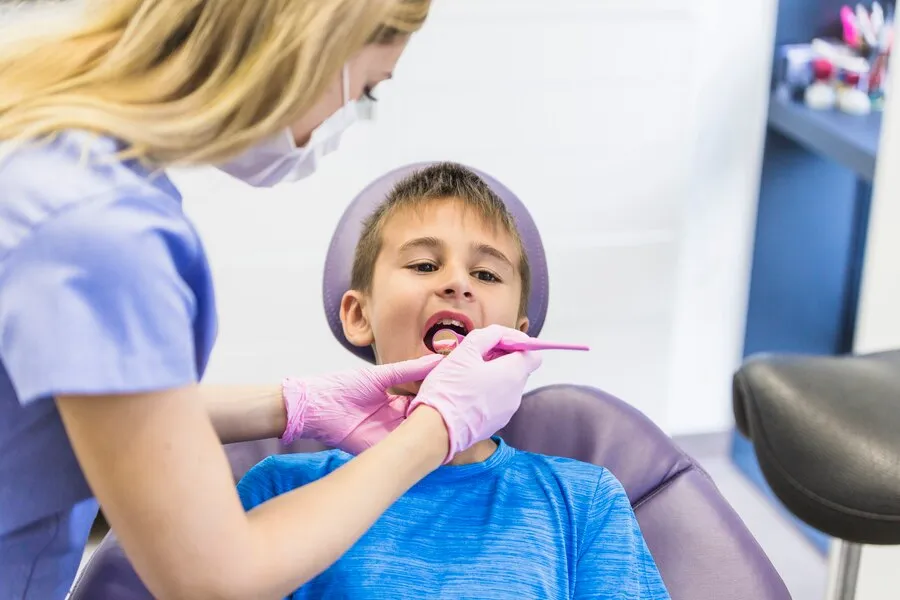Key Takeaways:
- Establishing the foundation for lifetime oral health requires early dental visits.
- Techniques for preventing dental decay in children: Prevention is always preferable to treatment.
- The specific role pediatric dentists play in children’s healthcare.
Table of Contents
The journey to robust dental health begins in childhood. Establishing a foundation for healthy teeth and gums is critical to a child’s well-being. Nurturing good oral hygiene and regular dental check-ups not only guards against cavities and gum diseases but also ingrains healthy habits that last a lifetime. As guardians of our children’s health, it’s incumbent upon us to comprehend pediatric dental care’s nuances – ensuring that trips to the dentist are both informative and reassuring, especially for neurodiverse patients Los Angeles CA, who may have unique sensory needs. This comprehensive guide outlines pediatric dental care’s importance and practical tips for preserving those precious young smiles.
The Importance of Early Dental Visits for Children
Visiting a dentist by the time the first baby tooth appears sets a precedent for a child’s oral health. These initial interactions help identify early signs of dental issues and establish a routine of regular check-ups. A first visit can also diminish future dental anxieties, fostering a positive outlook on dental care. Furthermore, pediatric dentists can provide parents with invaluable advice on caring for emerging teeth and preventing tooth decay from the outset.
Early visits are indispensable for children, particularly those within the neurodiverse community, who might find the sensory stimuli of a dental office challenging. Establishing a ‘dental home’ early on provides a sense of familiarity and comfort. The American Academy of Pediatrics supports this notion by highlighting that children should start dental visits by their first birthday. It’s where trust is built, and personalized care is provided, an advantage that cannot be overstated.
These early visits serve multiple purposes:
- Acclimating the child to the dental environment.
- Allowing for the monitoring of dental development.
- Initiating a relationship that can encourage consistent oral health practices.
The comfort and routine developed during these visits can ease the accommodations necessary for neurodiverse patients, providing a framework for more straightforward and less stressful future appointments.
Preventing Tooth Decay in Young Smiles
Tooth decay is one of the most common chronic conditions among children, yet it is also one of the most preventable. Prevention encompasses instilling daily brushing and flossing habits, understanding the role of diet in dental health, and timely using preventative treatments like fluoride applications and sealants. Addressing the role of sugary snacks and juices is vital, as their frequent consumption can increase the risk of cavities.
Early education and intervention are the cornerstones of preventing dental maladies. Parents and caregivers should be armed with knowledge of proper brushing techniques tailored to a child’s development stage, the importance of regular dental check-ups, and the significant role nutrition plays in dental health.
The Role of Pediatric Dentists in Child Healthcare
Pediatric dentists are the sentinels of young dental health, specialized not only with the skills to treat children’s dental issues but also with a deep understanding of children’s unique needs and behaviors. Their training goes beyond dental school, with additional years devoted to making children feel secure and heard—an essential trait for positive dental experiences. Pediatric practices are often designed to be more child-friendly, which is particularly beneficial for children who might struggle with new and potentially overwhelming environments.
How to Make Dental Visits Fun and Fear-Free
Creating a pleasant environment for children can profoundly change their perception of dental health services. Strategies such as discussing dental visits in a fun manner, rewarding brave behavior, and seeking out pediatric practices designed with children’s interests at heart are critical steps toward fear-free appointments. When children anticipate dental visits with excitement rather than anxiety, it significantly promotes lasting oral health practices.
Understanding and Managing Common Pediatric Dental Issues
Common pediatric dental issues range from cavities and tooth decay to habits like thumb-sucking and teething. Early identification and management of these issues are critical in preventing more significant problems later. Pediatric dentists are equipped to guide parents through these common challenges and offer treatment options if necessary. They encourage a proactive rather than reactive approach to oral health by working closely with families to develop preventive plans tailored to each child’s needs.
The Significance of a Child’s Primary Teeth
Primary teeth, or baby teeth, are often misunderstood in terms of their importance. These early teeth are essential for a child’s ability to chew and speak properly. They also act as temporary teeth in preparation for the permanent teeth that eventually occupy their place. Ensuring comprehensive care and being vigilant about the health of primary teeth can prevent pain, infection, and effects on the child’s systemic health.
Orthodontic Evaluations for Kids: When and Why?
Orthodontic evaluations are integral to a child’s dental care, generally recommended by age seven, to assess jaw and teeth alignment development. Such evaluations can identify whether early intervention might benefit the child, potentially simplifying or avoiding more invasive procedures. These can be even more critical for children with developmental or growth concerns that could significantly impact their bite and oral health if left unchecked.
Fluoride and Sealants: A Shield Against Tooth Decay
Fluoride treatments and sealants are preventative dental procedures that can significantly decrease the likelihood of cavities by fortifying the enamel and creating a barrier against acids and bacteria. These treatments are simple, fast, and effective ways to ensure young teeth have added protection. A child’s dentist is the best individual to advise on the appropriateness and timing of these treatments, often aligning them with routine dental check-ups.
Read Also: What is Oridzin: A Comprehensive Guide to Its Health Benefits
Encouraging Healthy Oral Hygiene Habits in Children
Good oral hygiene habits should be established as early as possible, ideally from the first tooth’s appearance. Parents and caregivers must lead by example, brushing alongside the children and making the routine engaging by incorporating stories or songs. Recognizing and celebrating when a child maintains good brushing and flossing habits can further incentivize them to care for their oral health.
Dealing with Dental Emergencies: A Parent’s Guide
Knowledge of how to handle dental emergencies is a crucial part of parenting. Whether dealing with a knocked-out tooth during a playful afternoon or a sudden, sharp pain that arrives without warning, understanding the proper steps can be instrumental in preserving a child’s oral health. Moreover, preventive measures such as using mouthguards during sports and ensuring safe play environments can keep many dental emergencies at bay.



